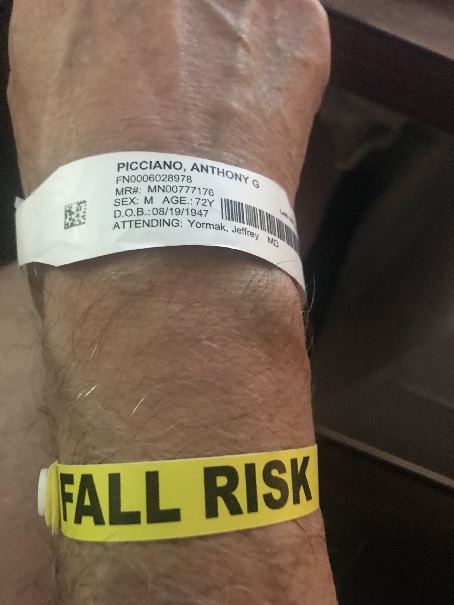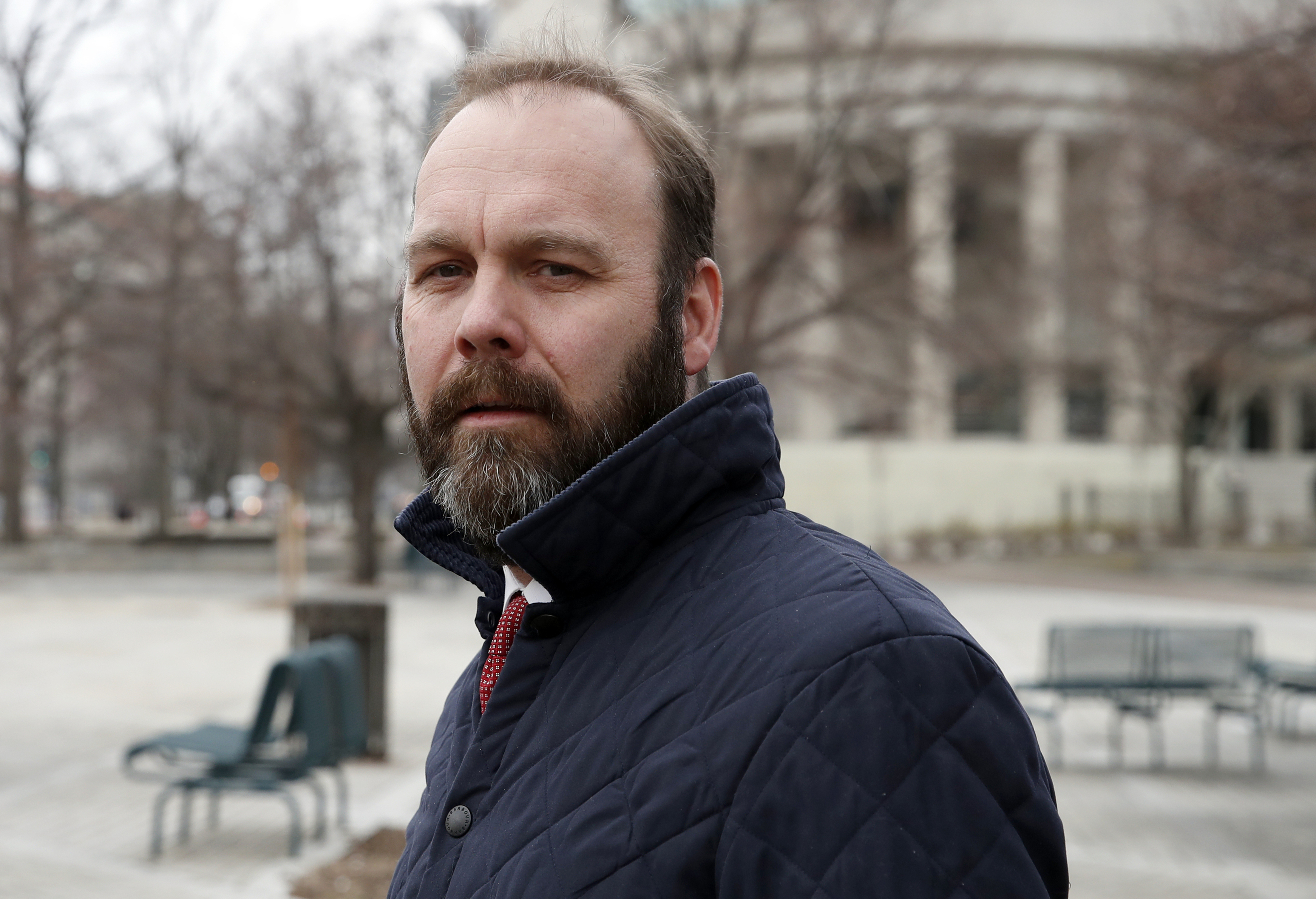
Dear Commons Community,
The Chronicle of Higher Education has a featured article this morning reviewing and analyzing the relationship of Charles Koch to George Mason University. Entitled, How George Mason Became Koch’s Academic Darling, the article tries to take a balanced view of Koch’s influence on the university by virtue of his gifts that have been close to $50 million. It is a good analysis that concludes that while there is little question that George Mason owes a great deal to Mr. Koch’s generosity, there is considerable disagreement over whether the philanthropist’s donations lend him “undue influence over the direction of the university or merely serve to enhance a few discrete academic programs that have long attracted scholars with a free-market orientation.”
It is a difficult issue given the size of the gifts and whether the boundary of undue influence has been breached.
The entire article is below.
Tony
—————————————————————————–
How George Mason Became Koch’s Academic Darling
By Jack Stripling May 13, 2016
In the annals of George Mason University’s history, few outsiders have claim to a role as prominent as Charles G. Koch.
Indeed, one can scarcely separate the story of George Mason from that of Mr. Koch, a libertarian billionaire who, along with his brother, David H. Koch, has used his fortune to try to swing elections and to emancipate markets from regulation.
The Koch brothers’ war of ideas expands far across academe, where programs aligned with their political interests curry philanthropic favor, but no institution has benefited as consistently from the Koch largess as has George Mason. And, arguably, no university has suffered as much criticism as a result.
The Charles Koch Foundation pumped nearly $50 million into George Mason from 2011 to 2014, according to an analysis of tax forms conducted by the Associated Press. Much of that money was steered toward the Mercatus Center, a libertarian-style economic think tank that Charles Koch helped to establish.
Naming Controversy
While there is little question that George Mason owes a great deal to Mr. Koch’s generosity, there is considerable disagreement over whether the philanthropist’s donations lend him undue influence over the direction of the university or merely serve to enhance a few discrete academic programs that have long attracted scholars with a free-market orientation.
This long-festering dispute reached a tipping point earlier this spring, when George Mason announced that it would name its law school for Antonin Scalia, the late Supreme Court justice, in recognition of a $10-million gift from the Charles Koch Foundation and a $20-million donation from an anonymous benefactor.
In naming the school for Justice Scalia, a hero to conservatives and a villain to many progressives, George Mason saw its uneasy relationship with one of the nation’s most-influential political families come under closer review. It also pitted professors against one another in an ethically charged dialogue about donor influence on teaching and research.
‘Market-Oriented Ideas’
The seeds of Mr. Koch’s relationship with George Mason were planted in 1980, when the Mercatus Center set up shop on the university’s campus. The center, which bills itself as “the world’s premier university source for market-oriented ideas,” helped George Mason to lure some of the biggest names in economics. They include James M. Buchanan Jr. and Vernon L. Smith, both of whom won Nobel Prizes.
Mercatus was founded by Richard Fink, a George Mason professor who would help to forge formal links between the university and Mr. Koch’s vast financial and political enterprises. As Mr. Fink ascended in Koch Industries Inc., becoming an executive vice president and member of the company’s Board of Directors, the economist’s influence grew at George Mason, where Mr. Fink served for eight years as a member of the Board of Visitors.
He remains a member of the Mercatus Center’s board, along with Charles Koch and Brian Hooks, executive director of the Koch Foundation.
George Mason’s emergence as a hot spot for free-market thinking soon extended to the university’s Law & Economics Center, a unit of the law school, which attracted legal minds of an often libertarian persuasion. Whether Charles Koch shaped George Mason’s trajectory or simply supported it, there are few institutions that have become so strongly identified with a particular school of economic thought across multiple disciplines.
Walter E. Williams, George Mason’s John M. Olin distinguished professor of economics, had a ringside seat for the university’s evolution. On a recent morning at his office, Mr. Williams, who joined the faculty in 1980, sounded unsurprised by the latest controversy concerning Mr. Koch, whom Mr. Williams considers a personal friend.
Most of George Mason’s faculty members, the professor said, “have utter contempt for the Constitution.”
“So a constitutional person like Scalia would be very offensive to them,” he said,
This is the sort of red meat Mr. Williams offers up to listeners of the Rush Limbaugh radio broadcast, where the professor occasionally fills in as guest host. Over the course of an hourlong interview, Mr. Williams lambasted “nasty liberals” at the University of Massachusetts, compared most forms of taxation to slavery, and watched a video of Mr. Koch toasting the professor at a dinner several years ago. During the toast, Mr. Koch seemed to relish an anecdote about Mr. Williams, who is black, once claiming that if any Black Panther Party members messed with him, he could “kick their butts.”
At 6 feet 4 inches, perhaps that is true.
Mr. Williams’s politics are no secret. On his bookshelves rest a bust of Adam Smith, the patron saint of unimpeded capitalism, and a copy of The Libertarian Reader. But Mr. Williams said that he is careful not to bring his opinions, hardened as they are, into the classroom. He scoffed at any suggestion that George Mason’s economics department indoctrinates students with antiregulatory, free-market messages. He does, however, hope his pupils will come to see the world just as he does.
“I would like students to share my subjective opinions,” Mr. Williams said. “If they become hard-minded thinkers, they will adopt many of my opinions.”
‘Obscure the True Agenda’
Few people seem to dispute that George Mason, at least in the disciplines of law and economics, is a more conservative campus than many other public institutions. The harder question is whether Koch money perpetuates that reality, and in so doing ensures that the university’s scholarship and teaching will serve the foundation’s political interests.
To answer that question, skeptics naturally look toward Mercatus. The center is a private, nonprofit research organization that operates independently of the university and without state or federal money, but it has considerable cross-pollination with George Mason’s economics department, some of whose professors rely on Mercatus to supplement their income. This year about two dozen George Mason faculty members received a total of $432,000 from the center, Mercatus officials said. The center has also provided financial support to 64 graduate students, nearly all of them in economics.
Mercatus has come under increased scrutiny over the past year, and much of that attention is due to Jane Mayer’s book Dark Money: The Hidden History of the Billionaires Behind the Rise of the Radical Right (Doubleday, 2016).
Ms. Mayer’s book recounts the political maneuverings of Charles and David Koch, as characterized in a confidential study written by Clayton A. Coppin, a management consultant at Koch Industries who taught history at George Mason.
In the study, Mr. Coppin described Mercatus as “a lobbying group disguised as a disinterested academic program.” By donating money to the center, Mr. Coppin wrote, Charles Koch received a tax deduction for financing what amounted to an advocacy arm for his “corporate interest.”
Establishing centers and institutes, Mr. Coppin said, was preferable to giving money to universities outright because it gave Mr. Koch more leverage.
“It would be necessary to use ambiguous and misleading names, obscure the true agenda, and conceal the means of control,” Mr. Coppin wrote. “This is the method that Charles Koch would soon practice in his charitable giving, and later in his political actions.”
Through his foundation, Charles G. Koch has given millions to George Mason U. An official with his foundation said Mr. Koch supports scholarship “about the relationship between freedom and prosperity. … It’s unfortunate that some folks have used political tactics to silence or attack scholars they don’t agree with instead of dealing with the ideas themselves.”
Tyler Cowen, general director of Mercatus, declined an interview request and referred all questions to Bob Ewing, the center’s director of media relations. Mr. Ewing said he had not read Dark Money and could not comment on Mr. Coppin’s characterization of the center. He stressed that the Koch Foundation is just one of more than 3,000 foundations, individuals, and corporations that provide Mercatus with financial support.
John C. Hardin, director of university relations for the Charles Koch Foundation, said the foundation is “interested in pursuing questions about the relationship between freedom and prosperity.”
“That’s what Charles is excited about supporting,” Mr. Hardin said. “It’s unfortunate that some folks have used political tactics to silence or attack scholars they don’t agree with instead of dealing with the ideas themselves.”
The Mercatus Center’s conflict-of-interest statement speaks directly to concerns of donor meddling, labeling any such interference as unacceptable.
“Mercatus financial supporters have absolutely no influence or control over the research design, methodology, analysis, or findings of Mercatus research projects, nor do they have influence or control over the content of educational programs,” the statement reads. “Offers of financial support predicated on such expectations are not accepted.”
The center’s strong language provides a bulwark against overt and egregious forms of donor influence, which academics of all political stripes would presumably find inappropriate. Subtler donor influences on the culture of George Mason University, however, are more difficult to detect and harder to quantify.
Carrie A. Meyer, an associate professor of economics at George Mason, joined the faculty in 1988, after finishing her Ph.D. at the University of Illinois at Urbana-Champaign. A former Peace Corps volunteer, Ms. Meyer describes herself as a political moderate who leans left of her colleagues. Looking back on her career, Ms. Meyer said, she has held back in her scholarship at George Mason, gravitating toward vanilla topics, such as a book based on the diaries of her family’s farm. She did not want to rock the boat.
“I carefully chose my research so it wouldn’t be objectionable to them,” she said.
Ms. Meyer described her colleagues as smart economists but said they collectively provide graduate students with a narrow view of the discipline.
“I would tell people that it’s better to go to a place where they would get a broader education,” she said.
Other George Mason professors push back against that critique. Peter J. Boettke, a professor of economics and philosophy, said the university values rigorous intellectual debate, not the parroting of some political orthodoxy.
“We have a variety of people with different views here,” said Mr. Boettke, director of a Mercatus program and an authority on the Austrian school of economics, which looks askance at government spending as an economic stimulus. “Let’s say we have a graduate student who wanted to write a thesis on the Affordable Care Act. Would they be discouraged from doing it because of Mercatus? I would hope not. I hope they would see this is an environment of open discourse and the best arguments win out.”
Whatever questions the Mercatus Center has invited, administrators have consistently concluded that it helps bring superstars into the university. Peter N. Stearns, a former provost of the university, said that the center’s association with politically motivated donors raised “yellow flags, but not red ones.”
“We didn’t know as much about the Kochs then as we do now,” said Mr. Stearns, who served as the university’s chief academic officer from 2000 to 2015. “I was aware of it and not entirely comfortable with it. But the program was providing us with objectively high-quality faculty. The reputation was high, even if they were aligned with a libertarian or a free-market stance.”
Polarizing Justice
What once passed for mild suspicion of the Kochs’ perceived influence has boiled over into outright disdain among some professors at George Mason. The Mercatus Center and the Institute for Humane Studies, another Koch-funded nonprofit on the university’s property, have been seen by critics as troubling satellite operations on the fringe of the university proper. But the gift to the law school brought those concerns closer to the core of the institution, and the Scalia naming tracks as a middle finger to liberal-minded students and professors.
Justice Scalia’s record on gay rights and racial preferences in college admissions are particularly troubling to some faculty members, who see his opinions as counter to the inclusive mission of the university. During oral arguments over affirmative action last year, Justice Scalia raised the specter of “mismatch theory,” questioning whether black students might do better at a “slower-track school.”
“I don’t know how we can call ourselves a public university and associate ourselves with someone who doesn’t believe that African-Americans belong at a school like Mason.”
“I don’t know how we can call ourselves a public university and associate ourselves with someone who doesn’t believe that African-Americans belong at a school like Mason,” said Craig Willse, an assistant professor of cultural studies.
Henry N. Butler, dean of the law school, said the idea of naming the school for Justice Scalia had come from the anonymous donor, who pledged $20 million to go along with the Koch Foundation’s $10-million contribution. The naming, Mr. Butler said, was by no means an endorsement of the totality of Justice Scalia’s views. Indeed, the dean said, he would just as happily have named the law school for Ruth Bader Ginsburg, the court’s reliably liberal justice, had that been the donor’s wish.
“I would have that $30-million smile on my face,” Mr. Butler said.
George Mason’s Faculty Senate passed a resolution last week calling on the university to put the renaming on hold until the gift agreements could be further reviewed. The discussion before the vote revealed an intensifying rift between law professors, who say the gift will advance the school’s national profile, and faculty members in other disciplines, who say the contribution gives the Koch Foundation undue leverage over university affairs.
Lloyd R. Cohen, a law professor, stood before a packed room of his colleagues and described the resolution as “hate-filled.”
“Consider the barely concealed contempt for the law-school faculty and administration, that we would voluntarily sell out our right to faculty governance and academic freedom for a donor,” Mr. Cohen said.
The anonymous donor’s gift agreement, which provides for scholarship money that will in turn generate tuition revenue to help pay for 12 new professorships, gives the donor broad discretion to terminate the deal if the school “is no longer principally focused” on its “mission.” It also stipulates that Mr. Butler, specifically, “is a critical part of advancing the school’s mission” and that the donor should be notified “immediately” if he is removed or resigns.
None of those stipulations, Mr. Butler said, infringe on the president and provost’s authority to fire the dean or the school’s authority to appoint the professors it sees fit. To suggest that the school would agree to anything less, Mr. Butler said, is offensive.
“They challenge our academic integrity, and they act like a bunch of purists,” he said of his critics. “It’s all political. I don’t throw hand grenades at other people in the university, and they are taking cheap shots.”
What Mr. Butler cannot deny, however, is that George Mason is taking a gamble. The business plan, such as it is, relies on the precept that the law school, which has seen staggering enrollment drops and a corresponding rankings decline, will rebound with help of the donors’ largess. The school expects to exhaust the $30 million in about 10 years, Mr. Butler said, after which the university will be relying on sustained enrollment increases to continue to pay for the dozen new professors.
Count David L. Kuebrich as a skeptic. Mr. Kuebrich, an associate professor of English, has spent years researching donor influence at George Mason, often finding that the university foundation’s agreements are confidential and not subject to public-records laws. The new agreements, which were made public because they required the president’s signature for the Scalia naming, ensure that the university will be indefinitely on the hook to pay for new faculty positions, whether the plan works or the donors deliver, Mr. Kuebrich said.
“The Kochs always cut hard deals,” he said. “They get a lot for their money, and it’s coming ultimately from Virginia taxpayers.”
‘No Brainwashing’
Like the economics department, George Mason’s law school has a solid reputation as a bedrock of libertarian thought. Its blending of law and economics draws upon the traditions of the University of Chicago, a number of whose leading scholars have a history of praising the power of unfettered markets.
The Scalia naming has rekindled concerns about the Law & Economics Center’s Mason Judicial Education Program. The program, which receives money from the Charles Koch Foundation and other right-leaning groups, provides seminars that aim to give judges an “understanding of critical economic disciplines” to inform their decision making, according to its website.
But critics on George Mason’s faculty have questioned whether the seminars are designed to ideologically influence judges.
- Bruce Johnsen (left), director of a judicial-education program at George Mason’s Law & Economics Center, scoffs at the idea that the program seeks to influence judges ideologically. “To suggest that anyone could get a bunch of judges together and brainwash them is just nonsense,” he says.
“There is no brainwashing going on here,” D. Bruce Johnsen, the program’s director, told professors at last week’s Faculty Senate meeting. “To suggest that anyone could get a bunch of judges together and brainwash them is just nonsense. These people, as their profession, listen to smart advocates constantly, and sift through what they say and they make up their own mind. So, again, I think this is just a thinly veiled attempt to tell a lie and repeat it over and over again.”
The law school’s reputation as a libertarian stronghold, however, may give some job candidates pause. When David N. Schleicher interviewed for a faculty position with the school, in 2008, he asked Daniel D. Polsby, who was then dean, whether it was a problem that the candidate leaned left politically.
“He said, ‘Of course not. Are you crazy?’” recalled Mr. Schleicher, who earned tenure at George Mason and is now an associate professor at Yale Law School.
To the extent that George Mason’s law school has hired conservative scholars, Mr. Schleicher said, it is at least in part because those professors are not thought to be as highly sought after by the more-liberal programs that dominate academe.
“The school has developed a bit of an ideology around hiring, the belief that you can hire better people because of biases elsewhere,” Mr. Schleicher said. “But it is certainly not exclusive in their hiring, as evidenced by them hiring me.”
Battle of Ideas
Thrust into the center of this debate is Ángel Cabrera, who took over as George Mason’s president nearly four years ago. Mr. Cabrera, a native of Spain, previously served as president of the Thunderbird School of Global Management, a financially struggling institution that, in 2014, was taken over by Arizona State University.
Before he assumed his duties at George Mason, Mr. Cabrera was briefed on all of the university’s key donors and prospects, including Mr. Koch. He later met with Mr. Koch at an Arlington, Va., hotel, the president said, where Mr. Cabrera was disabused of some of the legends about Mr. Koch as a dark and mysterious ideologue. The two did not talk politics but rather business-management theory, a shared passion.
“I’ve been around enough to know that everybody is a lot more nuanced and complicated and interesting than they are portrayed to be,” Mr. Cabrera said. “It is human nature to simplify people’s characters and positions.”
To Mr. Cabrera, Mr. Koch is no different than a passionate climate-change activist who invests in a university well known for its research on global warming. The president said he is not concerned about the foundation’s establishing a “beachhead” of political action at the university, as some critics have suggested, because George Mason applies the same standards of tenure, promotion, and peer review throughout the university.
“Call it a beachhead. I don’t know. Call it anything you want,” Mr. Cabrera said. “All I see as a university president is a generous philanthropist who believes in one of the many things we do, and he’s willing to invest there. And I say thank you; keep it coming.”
















